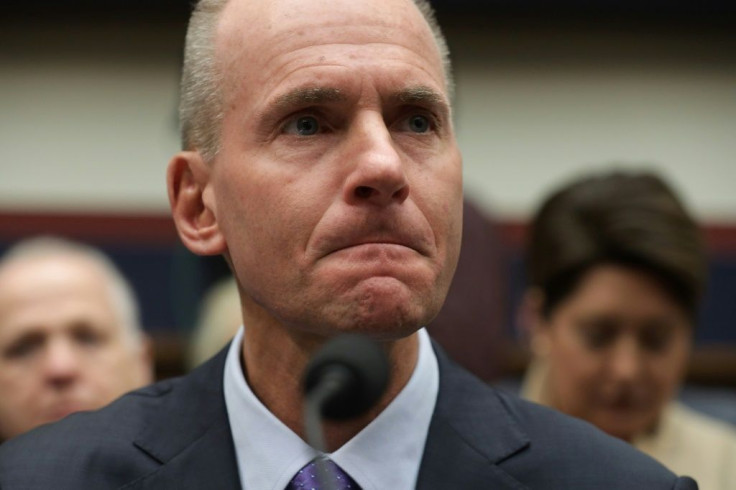Boeing 737 Max: Company Fires Top Executive For Poor Handling Of Aircraft Crisis

KEY POINTS
- Muilenburg resigned effective immediately and will be succeeded by David Calhoun
- Lawrence Kellner was named board chairman
- Boeing pledges renewed commitment to transparency
Boeing on Monday fired CEO Dennis Muilenburg in the wake of the company’s Boeing 737 MAX crisis, the company announced. He will be replaced by David Calhoun, who was named president and CEO.
The action follows by less than a week Boeing’s decision to suspend production of the 737 MAX in the wake of two fatal crashes that killed 346 people and delays in the aircraft’s recertification by the Federal Aviation Administration.
The announcement sent Boeing (BA) stock higher, up 3.25% shortly after the bell.
Muilenburg resigned his positions as CEO and board director effective immediately. During the transition period, Chief Financial Officer Greg Smith will serve as interim CEO.
“The board of directors decided that a change in leadership was necessary to restore confidence in the company moving forward as it works to repair relationships with regulators, customers, and all other stakeholders,” the company said, pledging “a renewed commitment to full transparency, including effective and proactive communication with the FAA, other global regulators and its customers.”
Lawrence Kellner was named chairman of the board.
Boeing announced last week it would suspend production of the best-selling 737 MAX in January following the crash of an Ethiopian Airlines plane in March 2018 and a Lion Air Lines plane crash the following October because of a software glitch. The planes were grounded in March 2019.
Boeing had hoped the plane would be recertified this month, but the FAA decided against moving so quickly. FAA chief Steve Dickson told CNBC earlier this month no action would be taken until next year after certain milestones had been met.
Southwest, American and United all have taken the 737 MAX off their schedules until well into 2020.
Muilenburg was roundly criticized for his handling of the aftermath of the crashes. His apology to victims’ families fell flat, and his actions angered lawmakers, airlines and regulators.
The crashes were caused by their plane’s automated system known as MCAS, which is dependent on sensors. During the investigation, it was revealed the system had no redundancies, unlike the military version of the plane, and data from a faulty sensor sent the plane’s nose down. Pilots were unable to compensate because they had received no training for such an event.
Muilenburg’s dismissal came in the wake of last week’s failure of its Starliner spacecraft’s mission to the International Space Station. A faulty timer problem caused the spacecraft’s thrusters to fire at the wrong time, putting it into the wrong orbit.
© Copyright IBTimes 2025. All rights reserved.






















